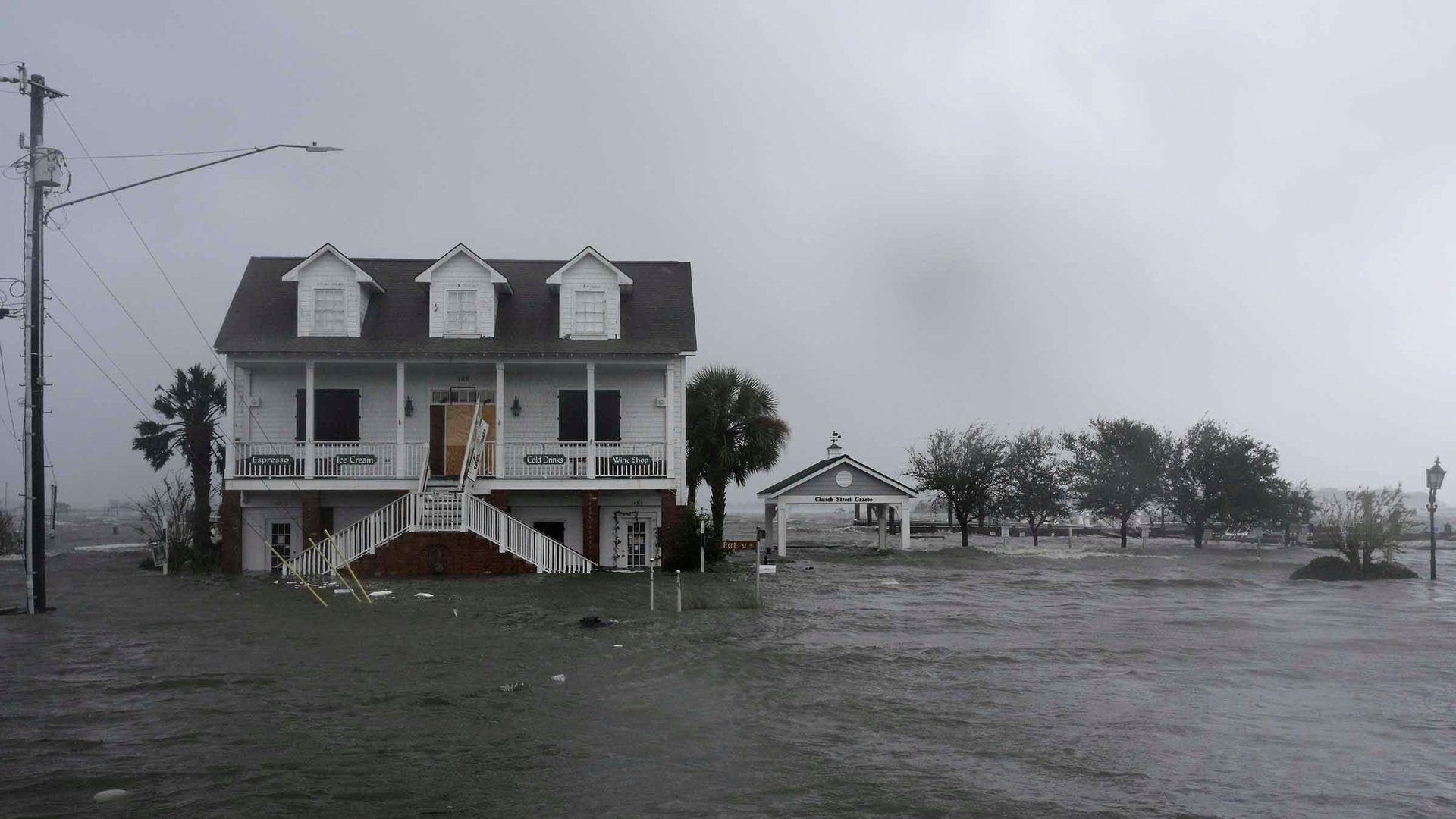Hurricane Florence is testing how big a mistake Carolina lawmakers made by ignoring science
In 2010, a panel of scientists warned North Carolina lawmakers about rising sea levels off the state’s coastal regions. The state government ignored those warnings, the Washington Post reports (paywall), and in 2012, banned state agencies from basing policy on predictions that sea-level rise was accelerating until 2016.


In 2010, a panel of scientists warned North Carolina lawmakers about rising sea levels off the state’s coastal regions. The state government ignored those warnings, the Washington Post reports (paywall), and in 2012, banned state agencies from basing policy on predictions that sea-level rise was accelerating until 2016.
Those decisions are now being put to the test as Hurricane Florence—downgraded to a tropical storm since making landfall yesterday (Sept. 14)—has brought dangerous storm surge and devastating flooding to towns up and down the North Carolina coast.
The warning came from a report (pdf) compiled by a panel of scientists who sought to bring together “the best available science on [sea-level rise] as it relates specifically to North Carolina.” Its intent was to give the state’s policy makers a scientific assessment of how much they could expect sea levels to rise in this century, so they could plan for threatened coastal areas, like those now being slammed by Florence.
The findings were clear: The historical record offered “undisputable evidence that sea level has been steadily rising,” and the scientists believed it was accelerating. By 2100, they expected a rise of one meter, or 39 inches, a significant risk for low-lying areas.
But the state’s Republican-controlled government brushed off those conclusions. As Reuters reported in 2012, a coastal development group fought the validity of the findings, concerned they would hurt the coastal economy, send insurance costs up, and turn thousands of square miles of property along the coast into flood plains barred from development. The state that year passed a bill that blocked state agencies from making policy based on the accelerated sea-level rise scientists predicted, limiting it to the eight-inch rise forecast by historic trends.
“They need to use some science that we can all trust when we start making laws in North Carolina that affect property values on the coast,” Rep. Pat McElraft, a Republican sponsor of the bill, said during a floor debate.
Opponents of the bill were outraged. Rep. Deborah Ross, a Democrat, called it “dangerous” and said it hurt property owners rather than helped them. It drew national attention, including from comedian Stephen Colbert. “If your science gives you a result you don’t like, pass a law saying the result is illegal,” he joked on his show The Colbert Report. “Problem solved.”
Development of the coastline has since carried on, heedless of the findings of the 2010 report. Stanley Riggs, a professor of geology at East Carolina University and one of the members of the scientific panel that wrote the report, told the Washington Post that those past decisions by lawmakers have contributed to the danger the North Carolina coast now faces from Florence.
“The state is now blowing the whistle, but it has not protected human life,” he said. “We shouldn’t have allowed those structures to be built.”